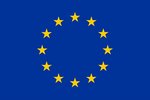Greenresilient: relevant in Sweden and other partner countries
A recent article published in Viola, a Swedish magazine, explains what the Greenresilient project is doing and why is it important for Swedish producers. Find out more about the Swedish context as well as other Greenresilient partner countries.

Due to a higher demand for organically produced vegetables, the area of organic greenhouse production has more than doubled in Sweden since 2009. Greenresilient project partners from SLU are investigating how the microbial diversity of the soil can be utilized to promote organic greenhouse production. They are specifically interested in the soils’ resilience against pathogen attack. Soil samples from trials in Italy, France, Switzerland, Belgium, and Denmark are being shipped to Sweden for analysis of soil microorganisms. For Sweden, results coming from the Danish trial are of specific interest since that mirrors the climate conditions of southern Sweden where a large part of the vegetable producers are situated. However, lessons can be learned from all of the experimental sites. Since the project has not been finalized yet, analysis of samples is still ongoing. From the soil samples taken at the beginning of the project we could see that the activity of microbes was highest in the French experimental site, and lowest in the Belgian and Danish sites. It is however too early to draw any conclusions from these results regarding the resilience of the soils when it comes to build up of pathogenic microorganisms.
New EU-regulations that limits organic greenhouse production to only grow plants directly in soil has caused difficulties for Swedish producers who have previously had the option to grow plants in pots and in confined beds. Due to the short growing season at this latitude, difficulties are met when it comes to introducing suitable crop rotations in order to promote production of the cash crops during the summer months, and in keeping good soil health. The results from the current project is therefore of high interest also for the Swedish producers.
Because Greenresilient is conducting experiments in different European climate zones with different European contexts, the project will provide relevant insights for a wide range of actors (farmers, technicians, consumers and policy makers) across Europe. To find out more about what is happening in your country or region, have a look at the Greenresilient website or the Greenresilient publications on Organic eprints. The full article in Viola is also available on Organic eprints.Due to a higher demand for organically produced vegetables, the area of organic greenhouse production has more than doubled in Sweden since 2009. Greenresilient project partners from SLU are investigating how the microbial diversity of the soil can be utilized to promote organic greenhouse production. They are specifically interested in the soils’ resilience against pathogen attack. Soil samples from trials in Italy, France, Switzerland, Belgium, and Denmark are being shipped to Sweden for analysis of soil microorganisms. For Sweden, results coming from the Danish trial are of specific interest since that mirrors the climate conditions of southern Sweden where a large part of the vegetable producers are situated. However, lessons can be learned from all of the experimental sites. Since the project has not been finalized yet, analysis of samples is still ongoing. From the soil samples taken at the beginning of the project we could see that the activity of microbes was highest in the French experimental site, and lowest in the Belgian and Danish sites. It is however too early to draw any conclusions from these results regarding the resilience of the soils when it comes to build up of pathogenic microorganisms.
New EU-regulations that limits organic greenhouse production to only grow plants directly in soil has caused difficulties for Swedish producers who have previously had the option to grow plants in pots and in confined beds. Due to the short growing season at this latitude, difficulties are met when it comes to introducing suitable crop rotations in order to promote production of the cash crops during the summer months, and in keeping good soil health. The results from the current project is therefore of high interest also for the Swedish producers.
Because Greenresilient is conducting experiments in different European climate zones with different European contexts, the project will provide relevant insights for a wide range of actors (farmers, technicians, consumers and policy makers) across Europe. To find out more about what is happening in your country or region, have a look at the Greenresilient website or the Greenresilient publications on Organic eprints. The full article in Viola is also available on Organic eprints.
Relevant links
Greenresilient website https://www.greenresilient.net/index.html
Organic eprints - Greenresilient https://orgprints.org/view/projects/GreenResilient.html
SLU participates in EU projects for more robust greenhouse cultivation, in Swedish: SLU deltar i EU-projekt för robustare växthusodling https://orgprints.org/38563/
Authors
Anna Karin Rosberg, Swedish University of Agricultural Science
Laura Kemper, Research Institute of Organic Agriculture (FiBL), laura.kemper@fibl.org, https://www.fibl.org
Fabio Tittarelli, CREA-AA, fabio.tittarelli@crea.gov.it
Editor: Karin Ullven / Design: Christine Dilling
